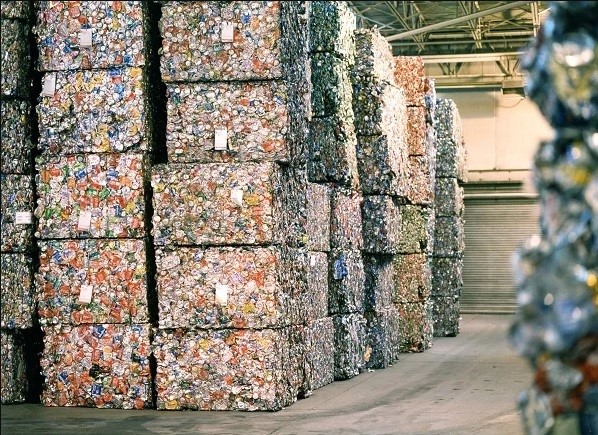

Brazil has set a new record by recycling 100 per cent of the 390,200 tonnes of aluminium cans sold last year, the highest rate reported since the measurements began in 1990. This outcome strengthens aluminium's position as a more favourable alternative for sustainability and the circular economy.
Recicla Latas, the managing entity, consolidated the data following an investigation by the Brazilian Association of Aluminium Cans (ABAL) of the volume of scrap collected and recycled cans and the volume of cans sold informed by the Brazilian Association of Aluminium Can Manufacturers (Abralatas).
{alcircleadd}
In 2022, the sales volume of cans fell more than the amount collected. Consequently, the finding implies that inventory consumption in the chain is expected to grow. Aside from the aluminium beverage can recycling rate, Brazil's scrap recovery percentage (55.4%) is also among the highest in the world.
"This result consolidates aluminum's position as a more advantageous solution in terms of sustainability and the circular economy. The leading role of the Brazilian aluminum industry in the beverage can recycling chain is a direct result of the bet made by the sector in recent years, in carrying out investments to expand the number of collection centers, and in the modernization of recycling factories", said, Janaina Dantas, Executive President of ABAL.

Aluminium is endlessly recyclable, and cans have a proper life cycle of sixty days. The reuse method decreases greenhouse gas (GHG) emissions and power usage compared to primary aluminium production by 95 per cent. According to the company's director, the social value and strategic relevance of the aluminium recycling chain also contribute to this outcome.
"In addition to the fact that we have a reverse logistics system that favors cooperation between government, industry, society and collectors' cooperatives", explained Janaina Donas, executive president of ABAL.
According to ABAL, there are still frontiers to be explored to fully capitalise on the advantages and benefits of aluminium recycling. Brazil must move ahead in negotiations to grow activity by implementing incentive mechanisms that do not distort the market, enhance traceability, and allow for a decrease in segment informality and access to metal from a secondary source.
There are still difficulties in evaluating the availability and recycling of items with a limited useful life, such as extruded products and consumer goods, as well as collecting and selecting multi-material products.
Responses








